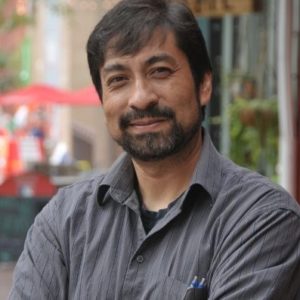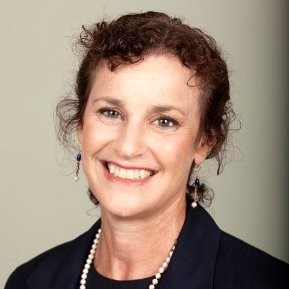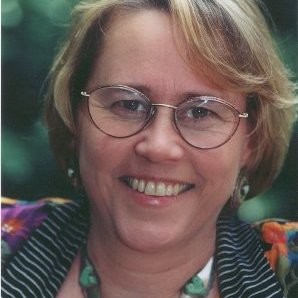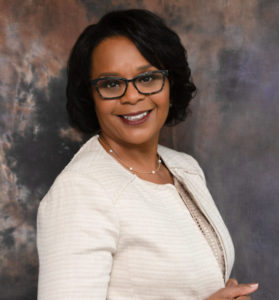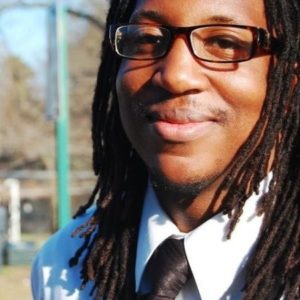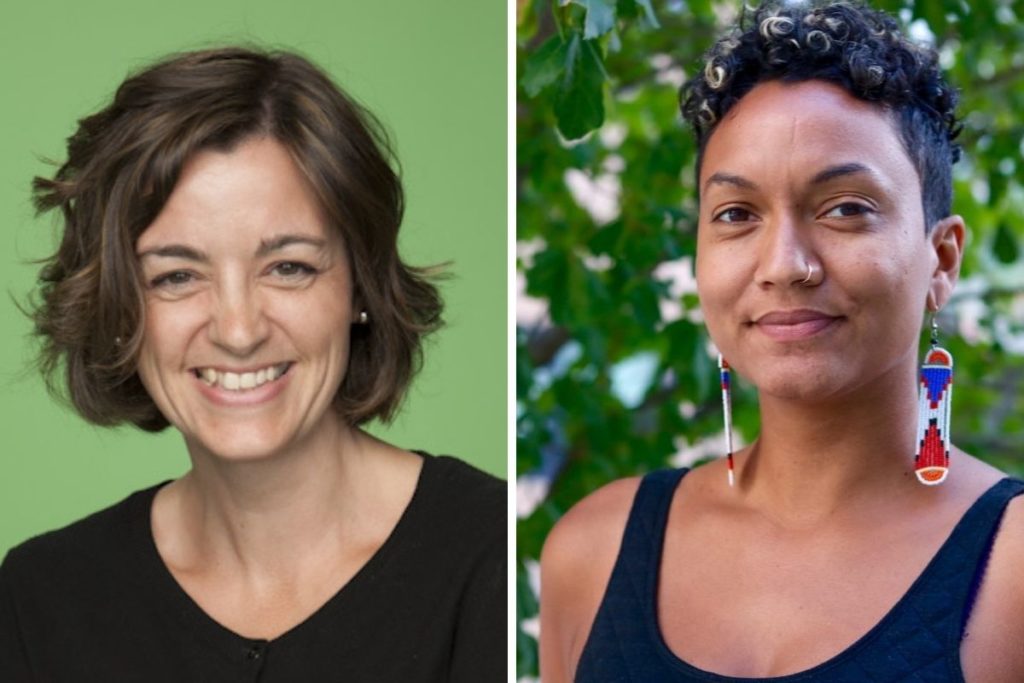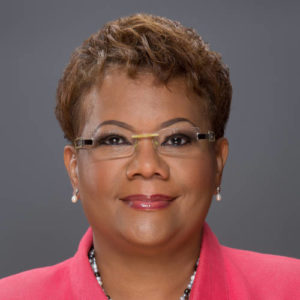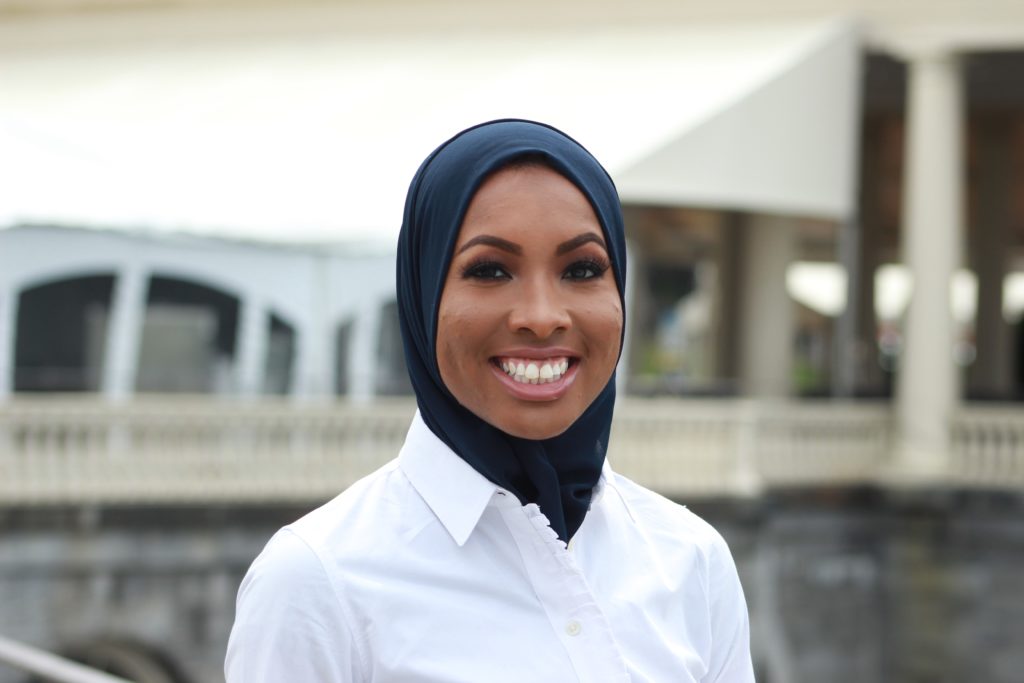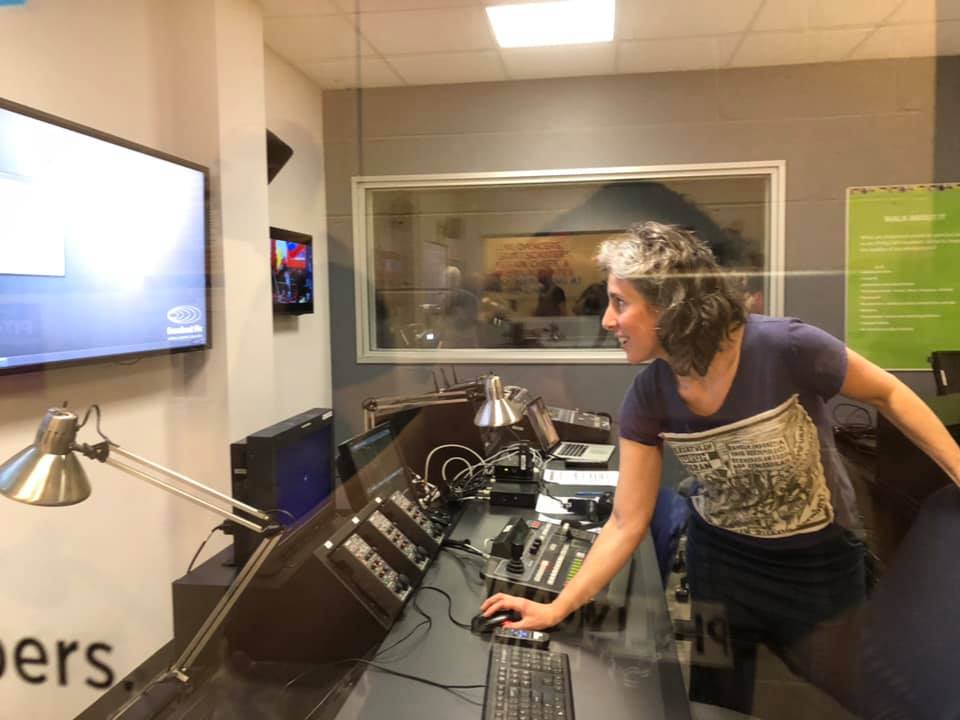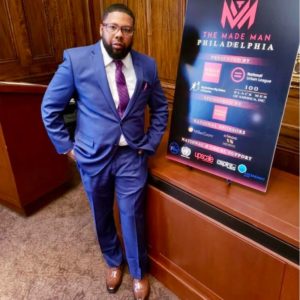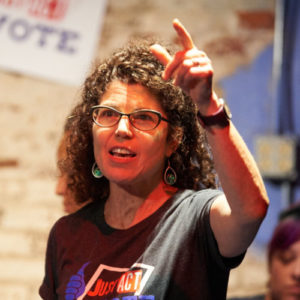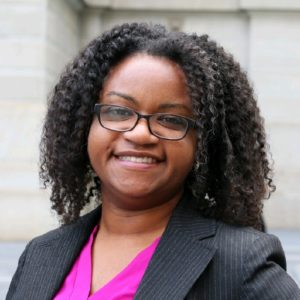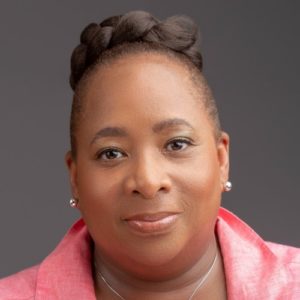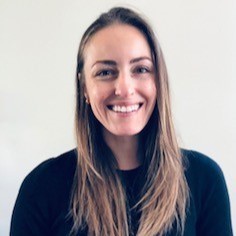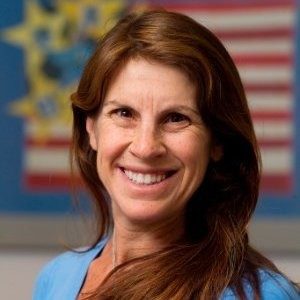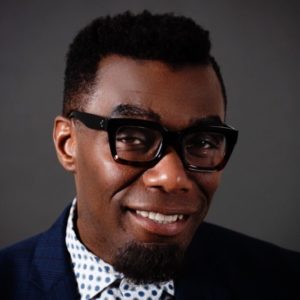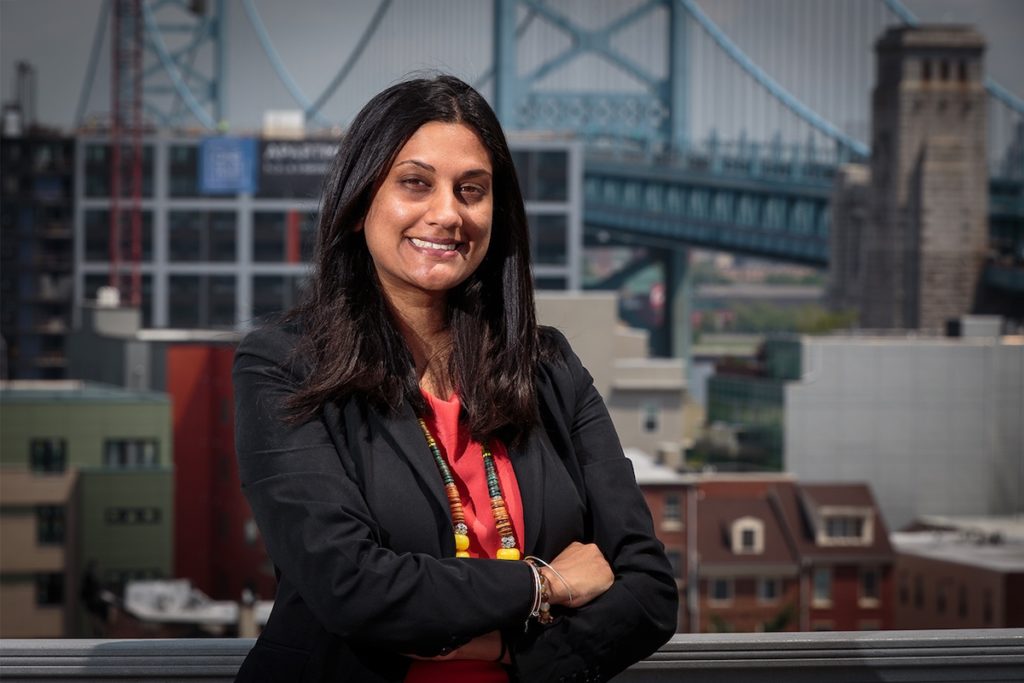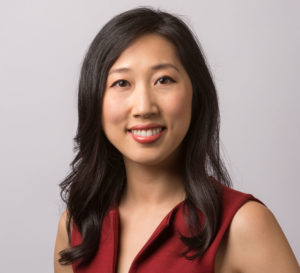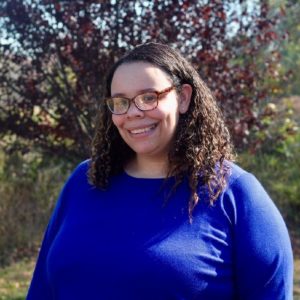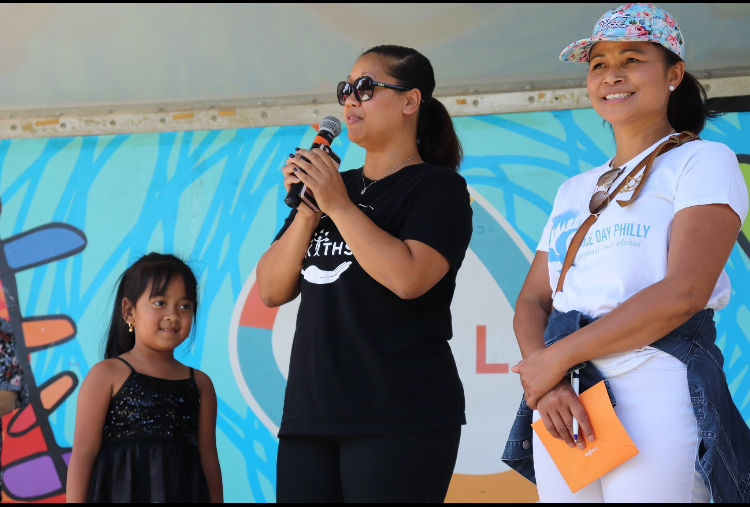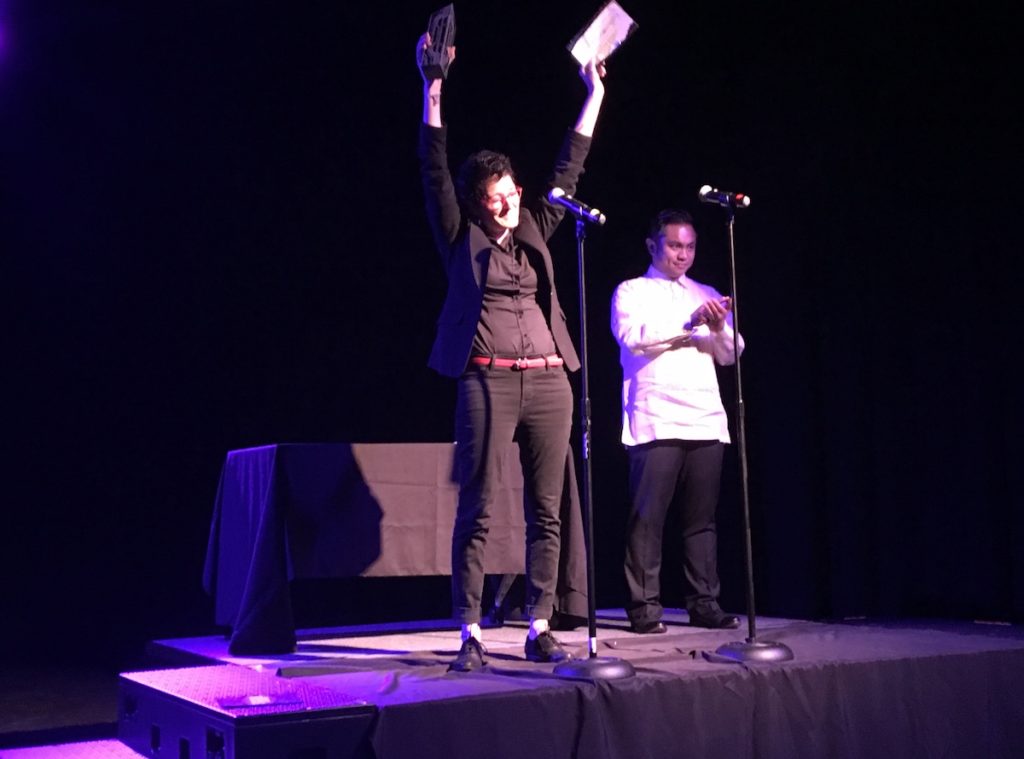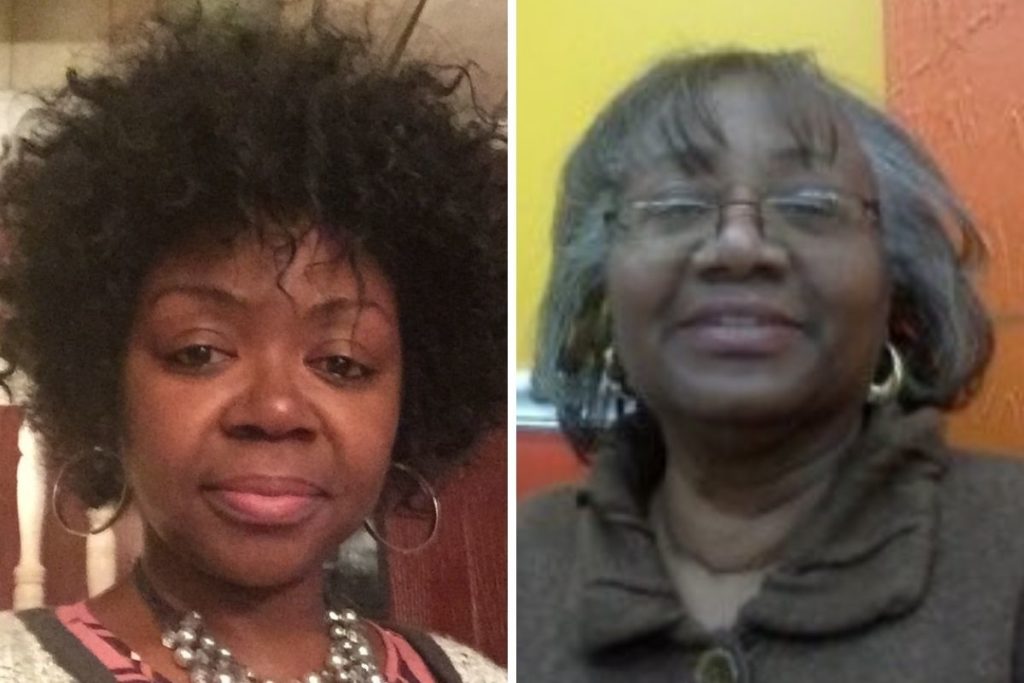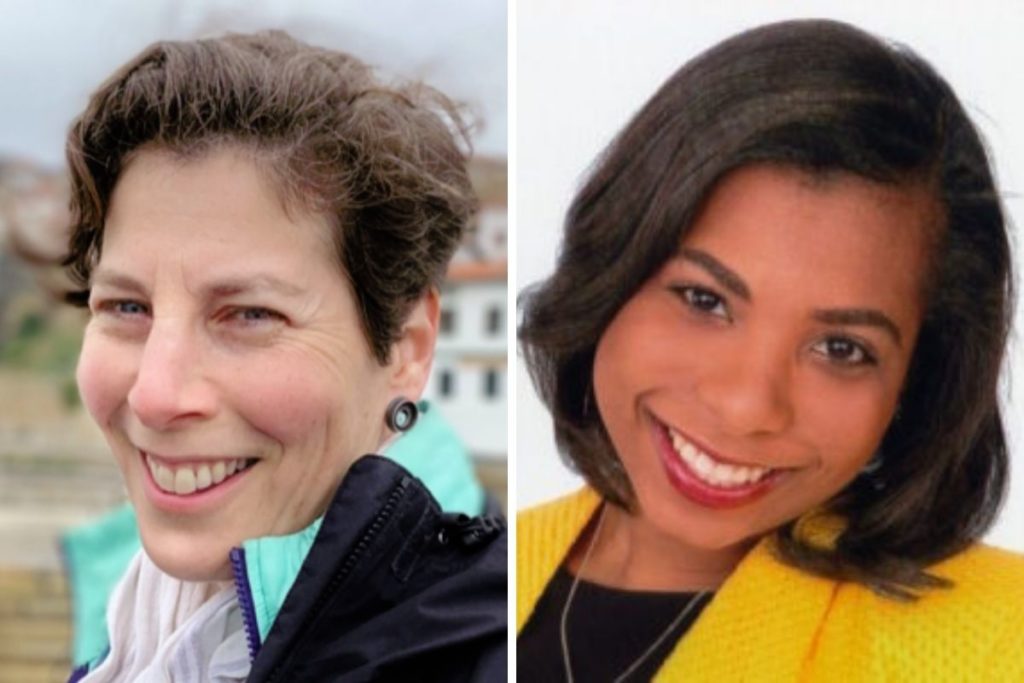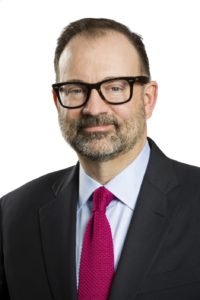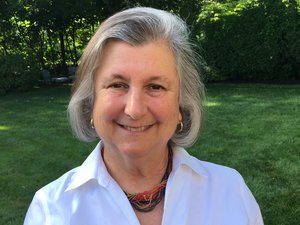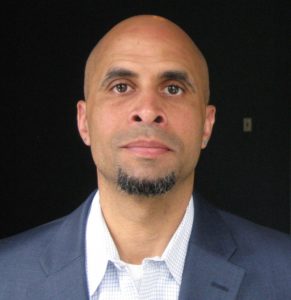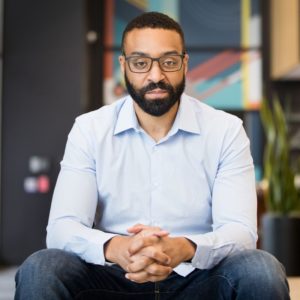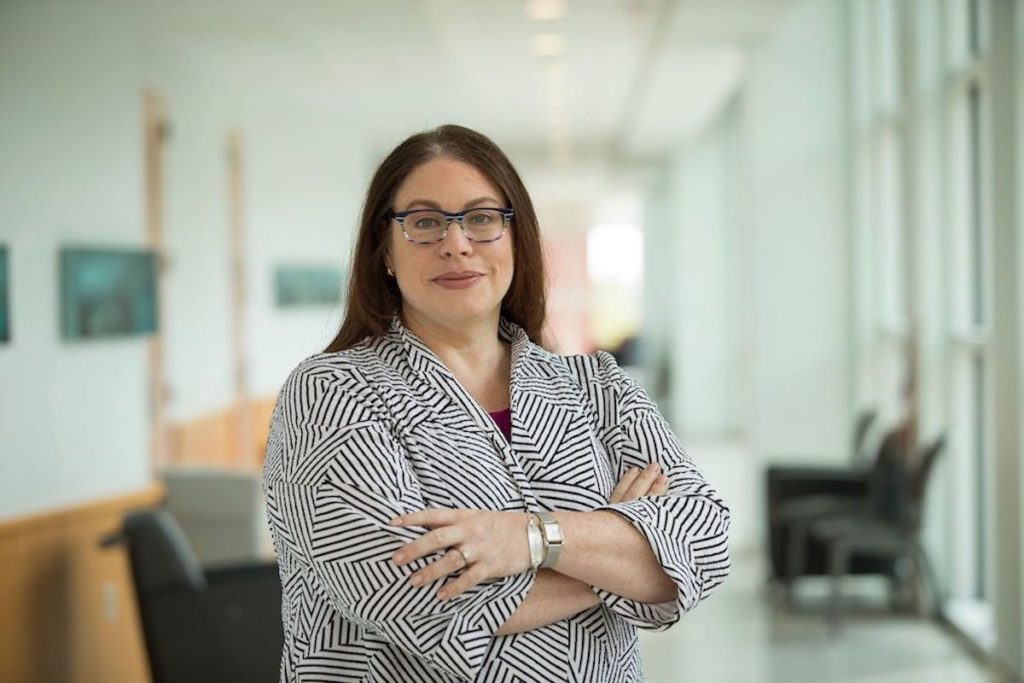RealLIST Impact: Meet 45 Philadelphia-area leaders whose work makes a difference
 November 5, 2021
Category: Featured, Long, People
November 5, 2021
Category: Featured, Long, People
Updates
Correction: The grade Ami Patel Hopkins teaches, and the school at which she teaches was incorrectly listed when this was originally published. (Nov. 5, 2021 at 7:09 p.m.). The number of years Andrea Brooks has worked at the Department of Behavioral Health and Intellectual disAbility Services was incorrec when this was originally published. (Nov. 12, 2021 at 11:07 a.m.)A lot has changed in the past two years. One thing that hasn’t? People in the nonprofit sector have had outsized impact on the quality of life in the Greater Philadelphia area.
For years our sister site, Technical.ly, has compiled RealLISTs of the committed and influential folks in the tech community. We’ve always thought it would be great to do something similar at Generocity.
From the largest foundation to the smallest grassroots org, we all know people who are working to solve problems, build solutions (sometimes from scratch and against all odds) and whose impact is very real. Some of them are well-known and work for orgs whose names we all recognize; others are less visible, flying under the radar even when their service is crucial to the communities they serve.
This list celebrates them. And, yes, we can easily think of another 20 or so we’d like to add to the list — but they’ll have to keep until next year.
Here, then, are 45 people, nominated by Generocity’s community members, shouted out to us directly by their peers and colleagues, and curated by the newsroom for our inaugural RealLIST Impact:
1. Obed Arango, founder and executive director, CCATE
If your heritage is revolutionary, you’re bound to shake things up.
Obed Arango, a descendant of the famed, early-20th century Mexican revolutionary Pancho Villa, moved to the Blue Bell area in the early 2000s and saw a rapidly growing Latinx immigrant population without organizations in place to help them thrive in their new home.
He founded the Centro de Cultura, Arte, Trabajo y Educación (CCATE) in Norristown in 2010, in an effort to address that lack.
Ten years later, the success of the nonprofit dedicated to promoting education, art, culture among the Latinx community is — like its social services-centered Norristown neighbor, ACLAMO — a point of pride for Latinxs far beyond Montgomery County.
Arango trained as an anthropologist, and has worked as a journalist and a visual artist, but with CCATE he has said his intention was to ensure that Latinx children had access to what would drive academic success. That meant access to arts and culture, and the opportunity to find and raise their voices.
It continues to be his focus — he recently opened HealthSpark Foundation‘s “Community of Practice” gathering with a screening and discussion of the film created by CCATE’s latest youth filmmaking class.
Arango also serves as a lecturer at the School of Social Policy and Practice at the University of Pennsylvania.
2. Leslie Benoliel, president, Entrepreneur Works
As the longtime president of Entrepreneur Works, Leslie Benoliel helps to provide important financial and technical assistance to small businesses in the City of Philadelphia, many of them owned by people of color.
During the pandemic, when many of those businesses were unable to qualify for federal small business relief, the organization, under Benoliel’s leadership, offered loans and grants and restructured programming to address the COVID emergency restrictions. Entrepreneur Works established virtual training programs for low-income entrepreneurs and instituted virtual loan application processes.
According to Benoliel’s nominator, “a total of 560 individuals benefitted from EWF’s business development services and loans.”
“By giving these disadvantaged businesses access to the technical and financial help they so desperately needed,” the nominator wrote, “Leslie and EWF have given a lifeline to these businesses to help them succeed and plan to rebound to even better growth in the future.”
3. Sandra Bloom, co-director, Center for Nonviolence and Social Justice, Dornsife School of Public Health, Drexel University
Ask Dr. Sandra Bloom about trauma-informed care and you’ll get answers from a nationally and internationally recognized expert.
Bloom is the originator of the Sanctuary Model — an approach to changing and sustaining a trauma-informed organizational culture. Between 2005 and 2016, more than 350 social service, juvenile justice and mental health organizations were trained in that model.
The co-director of the Center for Nonviolence and Social Justice at Drexel University, and associate professor at its Dornsife School of Public Health, is also the author of more than four books on trauma and trauma-informed care.
Bloom, who got her MD in psychiatry from Temple University School of Medicine, is a past-president of the International Society for Traumatic Stress Studies, and currently serves as the board chair of the Campaign for Trauma-Informed Policy and Practice, and as a task force steering committee member for the Philadelphia ACE Project.
4. Vanessa Briggs, president and CEO, Alliance for Health Equity (formerly Brandywine Health Foundation)
If you can’t imagine that a city in Chester County could be the site of transformative thinking on philanthropic equity, you haven’t met Vanessa Briggs.
The president and CEO of the newly renamed Alliance for Health Equity in Coatesville has, for the past four years, led the organization through significant change: conducting “Let’s Talk Coatesville” events in which residents of this majority minority small city participated in deciding philanthropic investment.
She also instituted a trust based philanthropy grantmaking program, and guided the foundation’s new Community Voice strategic priority. The first of the Community Voice initiatives — the Coatesville Black Media Renaissance Project — has launched and the next project is in the works.
According to her nominator, Briggs “serves as a role model and mentor for many leaders of our local nonprofit partners, members of local government, community residents and her internal professional team.”
Briggs herself has often spoken with Generocity about her thinking about increasing equity in the practice of philanthropy. “When you are trying to dismantle racism it’s a commitment for the long haul,” she told Generocity in July. “Do people have the fortitude, patience, resilience? That’s what it requires. It is selfless work.”
5. Andrea Brooks, director of behavioral health, Department of Behavioral Health and Intellectual disAbility Services
Andrea Brooks has been part of the Department of Behavioral Health and Intellectual disAbility Services for more than eight years, a trajectory that culminated with her being named director of behavioral health last month.
Brooks received her master’s in social work from the University of Pennsylvania, and quickly launched a career that has included stints at several of Philadelphia’s renowned service providing nonprofits, among them the Bethesda Project, Project HOME and Community Behavioral Health.
“She’s a connector,” her nominator said, “and a rising insider.”
6. Nigel Charles, director of donor organizing, Bread & Roses Community Fund
Nigel Charles, the director of donor organizing at Bread & Roses Community Fund, has been an integral part of the growth and success of the organization’s Giving Project. The project trains people to be social justice fundraisers, and to do work in a space that centers people of color.
Charles’s nominator said his impact can be seen in his “amazing facilitation and moving money — political education, building community across race, class, age and gender.”
“I really admire his drive,” the nominator added, “and commitment to [the] work.”
Charles’s social impact experience outside of Bread & Roses includes community development at LISC Philadelphia and teaching at charter schools in Philadelphia and Chester (Delaware County). He is also one of LEADERSHIP Philadelphia‘s Connectors and Keepers.
7. & 8. Molly de Aguiar, president, and Nuala Cabral, program officer, Independence Public Media Foundation
Molly de Aguiar, president of Independence Public Media Foundation, and Nuala Cabral, IPMF’s program officer, are together transforming the Philadelphia-area’s media landscape through philanthropy.
They are doing so by intention: investing in community-led efforts and community-owned orgs that center equity and justice, many of which are often overlooked by more conventional funders. In its initial funding cycle, IPMF allocated $5.3 million to 11 organizations; most recently it awarded $2.3 million to 47 organizations through its Community Voices Fund, and another $1 million to 18 organizations through its Digital Equity Fund.
Both de Aguiar and Cabral have deep histories of working to improve access to media, change default media narratives, and support community media makers.
De Aguiar launched and directed the Informed Communities program for the Geraldine R. Dodge Foundation for more than 11 years. She was also the first managing director of the News Integrity Initiative at the Craig Newmark Graduate School of Journalism at CUNY, and has served on the board of Media Impact Funders for six years.
Cabral, a filmmaker and teaching artist, developed the youth program at BlackStar Film Festival, and founded FAAN (Fostering Activism and Alternatives Now), a media literacy and activist project formed by queer women of color, and was a founding member of BYP100, a national Black youth activist organization.
“Community-led grantmaking, in my mind, means meaningfully handing over decision-making power to communities where possible,” de Aguiar told Generocity in 2019, “and doing a much better job finding, funding and providing wrap-around support for grassroots organizations that are working as close to the ground as possible.”
9. Della Clark, president and CEO, The Enterprise Center
Last fall, The Enterprise Center celebrated 30 years of serving 1,000+ minority enterprises in the Greater Philadelphia region. Della Clark has led the organization for 27 of those 30 years.
Last year she led in the creation of the Center’s Innovate Capital Initiative, a $50M equity fund that facilitates strategic partnerships between minority businesses and investment partners.
“The Enterprise Center strongly believes that minority entrepreneurship deserves this chance to reach its full potential in Greater Philadelphia,” Clark said when she wrote about the initiative in 2019. “It deserves the opportunity to prove that we can generate a return on investment while building a new generation of minority business leaders in our city.”
Clark’s nominator focused on the importance of this latest initiative.
“If we’re going to align the collective financial assets in our region with what’s best for the future of our region, there have to be products and vehicles that enable that to happen,” the nominator said. “Without [Clark and her efforts] the flow of capital to impact companies and projects would be much smaller and slower.”
10. Erinn Corbett-Wright, VP – charitable foundation program manager, TD Charitable Foundation
Forbes may have only recently discovered that Erinn Corbett-Wright, from the TD Charitable Foundation, is a rising star, but Generocity has known it since we first met her — just after she had left the Pew Charitable Trusts to join TD in early 2019.
Since then we’ve had opportunity to see her impact on discussions about the future of work, as part of the leadership of She Can Win, in TD’s “Housing for Everyone” project, and crucially, as one of the voices of Black leadership and Black philanthropy in the region.
“The lived experience of being Black in America is a nuanced experience that varies person-to-person but too often is a perspective left out of decision and change-making at large institutions,” Corbett-Wright told us in July 2020. “Inclusive design means elevating voices of those most at-risk of harm, beneficiaries of a product or program, and incorporating their specific feedback into the final product.”
11. Rev. Luis Cortés, founder, president and CEO, Esperanza
When the Rev. Luis Cortés saw that the list of Philadelphia’s mass vaccination sites during the initial surge of the COVID 19 pandemic included no sites in the most densely populated Latinx communities of the city, he offered Esperanza.
When vaccine hesitancy proved to be an issue within those same Latinx communities, he went to the local Telemundo station, rolled up his sleeve, and got his shot where he knew Spanish-speaking Latinx Philly would be watching.
The founder of the sprawling Hunting Park nonprofit — with its multiplex of buildings housing educational, health, cultural and informational service providers focused on the Latinx community — has always been the kind to respond to problems by decisively doing.
According to the 2017 report by Econsult Solutions about Esperanza’s impact, the organization had at that time spent more than $126 million on construction in Hunting Park since 1986, leading to 1,200 jobs with $68 million in earnings. Since then, the nonprofit has added a performing arts space, started publishing Impacto (a Spanish-language community newspaper), and engaged in multitude of other projects, large and small.
But the real impact Cortés has had on the Latinx community of Philadelphia is immeasurable.
“It’s our hope that [Hunting Park] will be forever part of the Latino community, and that’s why we want to … continually create a Hispanic diversity, a diversity of Hispanic groups, Hispanic entities, but focused on one geographic area,” Cortés told Generocity in 2019. “So that we can welcome Hispanics to our city into a place where folks can find their language, their culture.”
12. Joanne Craig, chief impact officer, The Foundation for Delaware County
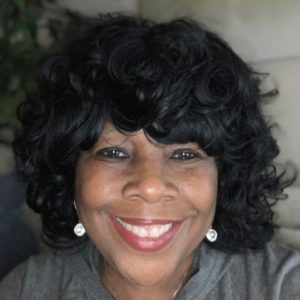 When journalist Malcolm Burnley wanted to write about the maternity care crisis in Philadelphia, he turned to an expert on the topic: Joanne Craig.
When journalist Malcolm Burnley wanted to write about the maternity care crisis in Philadelphia, he turned to an expert on the topic: Joanne Craig.
The chief impact officer for The Foundation for Delaware County is also a member of the Maternal Mortality Review Committee Gov. Tom Wolf instituted in 2018.
Plus, she spent 24 years administering and managing grant-funded maternal and child health programs at Crozer-Keystone Health System.
Craig was also part of the extraordinary mobilization of resources the Foundation underwent in response to the pandemic, with funding rounds in the double digits.
In middle of it all, Craig was careful to keep her focus on the continued impacts felt by the people served by the Foundation’s grantees.
“[The] people still seeking food, diapers, baby formula and more week-to-week and month-to-month,” she told Generocity in October 2020. ” The number of people who are behind in their rent and mortgages […] If one cannot afford to pay his or her rent or mortgage now, how will she pay a lump sum to avoid postponed eviction?”
13. Greg DeShields, executive director, PHL Diversity and Tourism Diversity Matters
 Greg DeShields‘s impact is measured through connection.
Greg DeShields‘s impact is measured through connection.
In his role as the executive director of PHL Diversity he literally connects meeting planners to local businesses to suppliers to community leaders.
As the executive director of Tourism Diversity Matters — founded in the wake of George Floyd‘s killing and Black Lives Matter protests — DeShields helps decision-makers in the tourism and events industry better connect with (and retain) a diverse workforce.
And as a Generocity Power Breakfast regular, he has actively connected his nonprofit colleagues to resources and strategies from a segment of the sector that is often overlooked.
He is serious about cultivating talent, and about building a pipeline for it. In 2007, The DeShields family endowed The Delores W. DeShields Scholarship at Temple University‘s School of Sport, Tourism, and Hospitality Management to support students entering into industry.
DeShields also founded the Temple’s National Society of Minorities in Hospitality chapter, and facilitates the National Association of Black Hotel Owners Operators and Developers’ student program.
14. Laura Deutch, education director, PhillyCAM
Laura Deutch, the education director for PhillyCAM, “has taught media making out of a customized van, projected video from a bicycle powered tea cart and worked in collaboration with Latinx and Southeast Asian filmmakers to make documentaries about the immigrant experience in Philadelphia.”
Deutch’s impact, her nominator said, is “felt through all the hundreds of people that she has personally trained or mentored to learn how to use media.”
The need to make television news more diverse has been one of Deutch’s drivers. In her role as educator, she worked to ensure that the media landscape would become more reflective of the neighborhoods and changing demographics of the city.
“She is a convener, bringing people together to make art, break bread, explore new ways of doing things and learn from one another,” her nominator said.
15. Cory Donovan, executive director, ImpactPHL
Need to figure out how to align your investing to your values? Cory Donovan, executive director of ImpactPHL is the person to ask.
“Cory Donovan is a quiet and connecting force,” wrote his nominator. “He is the wonderfully accessible on-ramp for people who are trying to figure how to align their values with their investing and for young ventures trying to figure how to finance their ambitions.”
As the inaugural director of the organization, Donovan has grown it into a civic partner for a variety of notable companies and nonprofits, including Ben Franklin Technology Partners, the Economy League, Social Venture Circle, and Philanthropy Network Greater Philadelphia.
“He never hesitates to engage and often then uses his own political capital to open doors for others,” his nominator added. “Ask any dozen people in the start-up community or the social sector about Cory Donovan and tell me that you get anything other than rave reviews of a human who puts the needs of Philadelphia and everyone else first. He is a kind and trusted connector.”
16. Rickey Duncan, CEO and executive director, NoMo Foundation
NoMo Foundation‘s mission is to provide children and teens with prevention and early intervention, healthy lifestyle information. Its focus on youth includes workforce development, after-school and summer camp programming, and a mentoring and advocacy program.
According to Rickey Duncan‘s nominator, the CEO and executive director of the foundation lives that mission and focus, serving as a leader in early intervention and gun violence reduction in Philadelphia over the past 11 years.
“He and his NoMo team have served 5,000 youth, reconciled over 100 justice-impacted families, with less than 1% youth being further impacted by the justice system,” the nominator said.
“As a grassroots leader,” the nominator added, “[Rickey] has been able to strategically build NoMo and partner to holistically serve the community. He has overcome the lack of government support and complicated funding regulations. In a city where the murder rate is steadily increasing, he continues to be a voice and advocate for reducing gun violence and community based solutions.”
17. Lisa Jo Epstein, artistic and executive director, Just Act
The founding director of Just Act, Lisa Jo Epstein, uses theater as a catalyst for activism.
She brings, her nominator wrote, an arts and theatre-based approach to resident-driven community engagement.
This novel approach was most recently in evidence at a “Community Data Jam” held at Taller Puertorriqueño in the Fairhill section of the city — part of a cultural organizing project called “Restore-Reimagine-Rebuild Rivera & Mann Centers” led by Just Act in collaboration with HACE CDC.
“Lisa Jo’s extensive background in Theatre of the Oppressed, Forum Theatre and Story Circles has resulted in community programming that not only transforms ‘me to we’ but also energizes community members,” said Epstein’s nominator. “Through her partnership with local residents, leaders, and organizations such as the City of Chester, Germantown Heart & Soul, and Philadelphia Association of Community Development Corporations, Lisa Jo has guided residents to explore the possibilities that can emerge as community members share history and vision for change.”
18. Amy Eusebio, executive director, Office of Immigrant Affairs, City of Philadelphia
Amy Eusebio‘s nominator felt the impact the executive director of the Office of Immigrant Affairs of the City of Philadelphia has had is so self-evident it required no elaboration.
As a Philly immigrant, he’d know exactly whereof he speaks.
But Eusebio’s impact isn’t limited to the many things she does, or the people she connects, or the services her office provides.
Black Latinxs — about a quarter of all Latinxs in the US — are underrepresented in all sorts of spaces, including civic ones. Eusebio’s high visibility post — one of just a handful of Latinxs in the Kenney Administration — makes her what in Spanish is known as a “modelo a seguir.” While modelo a seguir is most simply translated as “role-model,” it also connotes opening a path for others to follow — as Eusebio does for Afro-Latinx young people in the city.
The daughter of Dominican immigrants, Eusebio understands intimately the difficulties Latinx and Black immigrants confront in the US. Her nine years as director of family wellness at Congreso de Latinos Unidos have also made her deeply familiar with the challenges experienced by US-born citizens living in the poorest neighborhood of the poorest big city in the US.
“In my work, I see part of my responsibility is to hold the American government accountable to what it has promoted that it stands for over so many decades,” she told Generocity in September. “We are America. We built this country and continue to build this country so that we can continue to be the land of opportunity, not just for us, but for all people coming to seek a chance to thrive.”
Eusebio is the board co-chair of the Women’s Medical Fund, which she has served on for nearly nine years, and served as a steering committee member of the Latino Partnership Leadership Institute for eight years.
19. Jill Fink, executive director, The Merchants Fund
The Merchants Fund has been around a long time, but it has flown under the radar. Until Jill Fink became the Fund’s executive director, says her nominator.
“One reason I am so excited about Jill’s work is that, by paring down the application process, TMF opens the playing field to minority, immigrant, and women small business owners to receive crucially needed funding — truly moving closer to “trust-based” relationships with grantees,” the nominator wrote. “By minimizing the bureaucracy and removing hurdles to apply, TMF has overcome the challenge to small businesses of having access to funds. This is HUGE.”
Fink had served as the executive of the nonprofits Food Moxie and Back on My Feet before joining the Merchant Fund, and had owned and operated her own small business. She currently sits on the board of the Seybert Foundation.
She is described as a behind-the-scenes changemaker, who doesn’t look to be in the limelight. But, said her nominator, “She knows, and is so highly regarded, by everyone (and I mean everyone) in Philadelphia who is serious about creating greater access to capital for minority, immigrant, and women small business owners. Philly should know, and see, Jill Fink more.”
20. Donna Frisby-Greenwood, president and CEO, The Fund for the School District of Philadelphia
Look for a definition of “Black Excellence” and you’ll see Donna Frisby-Greenwood.
She has led the Fund for the School District of Philadelphia — which sets funding priorities and manages donations, directing philanthropic contributions toward the needs of Philadelphia’s public schools — for the past six years.
She came to that post after serving for nearly five years as a program director at the John S. and James L. Knight Foundation; nearly six years as director of college and career awareness at the School District of Philadelphia; four years as executive director of Inner City Games Philadelphia; and five years before that as executive director of Rock the Vote.
“Nonprofit leaders should not grow comfortable with their work; when we do, it only means that we have lost sight of the inequities and issues that we are trying to address,” Frisby-Greenwood said in August 2020. “We can and always should do better, and we should ask ourselves how else we can move forward with compassion.”
21. & 22. Bill Golderer and Pedro Ramos, co-directors, PHL COVID 19 Fund
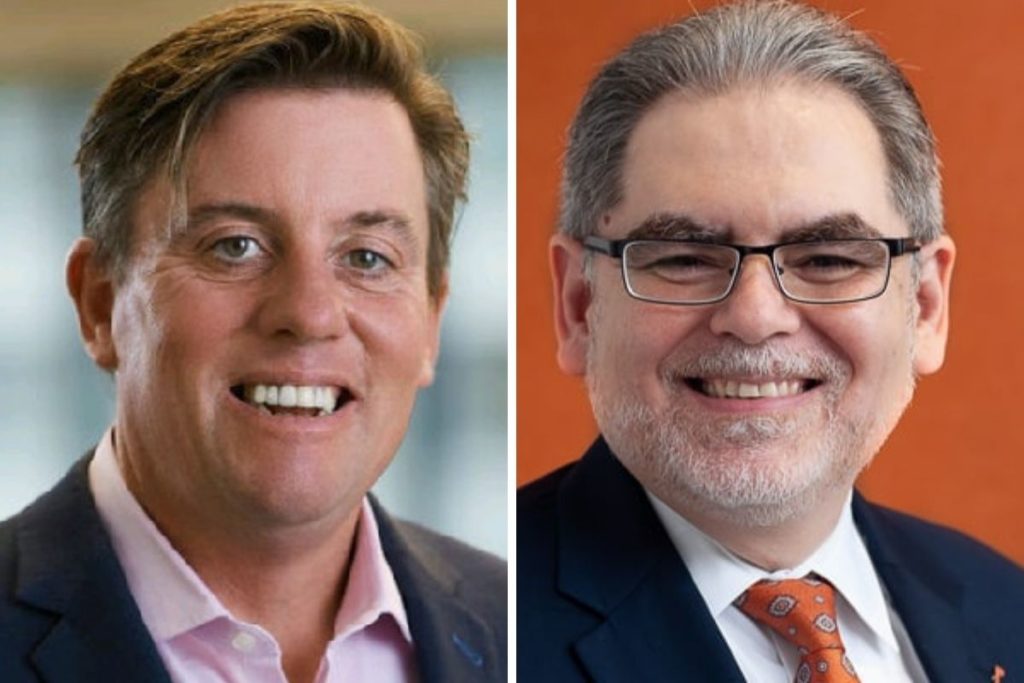
L: Bill Golderer, president and CEO of United Way of Greater Philadelphia and Southern New Jersey; r: Pedro Ramos, president and CEO of the Philadelphia Foundation. (Photo on left from LinkedIn; photo on right, courtesy)
Who has the wherewithal — and the sheer guts — to get a major COVID relief fund up and running in a week?
“It might have been three days,” Bill Golderer, the president and CEO of United Way of Greater Philadelphia and Southern New Jersey told Generocity in March 2020. “The power of now is that everyone is very focused.”
“It might have been a week,” countered Pedro Ramos, the president and CEO of the Philadelphia Foundation. “Though it felt like one long day.”
The result of that extraordinary feat was the PHL COVID 19 Fund, which had raised $6.4 million in funding even before it was officially announced.
It would go on to raise $18.4 million, awarding funding to more than 500 nonprofits that could offer immediate, on-the-ground help to countless residents of the region.
Now that’s impact.
23. Emma Hertz, director of external affairs, HealthSpark Foundation
Like the Alliance for Health Equity (#4 above) is doing in Chester County, the HealthSpark Foundation is making Montgomery County the site of new thinking about philanthropic equity and justice.
Emma Hertz, the director of external affairs for the foundation for the past two years, is right there, in the thick of things.
Hertz has been an important part of HealthSpark’s Safety Net Resiliency and Voices for Change initiatives, which provide support for arts, storytelling, and journalism that lift up unheard and underrepresented voices with the intention of creating a fairer and more just Montgomery County.
The impact of the work Hertz is doing is wide-ranging.
Among the community voices that have received funding from HealthSpark under the aegis of its equity and justice work is The Welcome Project PA, which will be creating media on best medical practices for transgender, non-binary and intersex patients, and Norristown Men of Excellence, which amplifies the voices of low-income, Black, and immigrant communities.
24. Liza Herzog, director of academic research, Close School of Entrepreneurship at Drexel University
Liza Herzog has been director of academic research at the Close School of Entrepreneurship of Drexel University for the past three years, but her work evaluating and effecting policy change in educational settings spans nearly two decades.
During her 10 years at the Philadelphia Education Fund, Herzog evaluated district investments in college access programming and early warning systems, and at University of the Arts, she designed and administered educational assessment tools
“Liza is the quickest thinker (and biker) I know,” said her nominator. “She zips around Philadelphia connecting communities to the good work of public schools.”
But it turns out, her impact extends further than schools.
Herzog also serves as the interim executive director of the LandHealth Institute. That nonprofit, located in the West Parkside neighborhood of the city, focuses on immersive environmental education and community-based land revitalization.
25. Mike Hinson, president and COO, SELF, Inc.
Mike Hinson, president and COO of SELF, Inc., was shouted out as an important voice in the work of providing services for people experiencing homelessness in the city.
SELF, Inc., which is helmed by Dr. W. Wilson Goode, Sr., offers emergency housing, case management and street outreach, and works closely with both the Office of Homeless Services and the Department of Behavioral Health and Intellectual disAbility Services.
Hinson is the organization’s leading housing policy advisor, was the founder of The COLOURS Organization, the co-founder of Philadelphia Black Gay Pride, and served for six years as the president of the board of trustees of Union Benevolent Association.
“I believe the public service sector’s greatest challenge is the lack of political will, motivation and courage desperately needed from elected, appointed and anointed leaders to transform the ill effects of poverty that show up as roadblocks to successful, safe and healthy living,” Hinson wrote for Generocity in December 2020. “These roadblocks severely impact the life outcomes of Philadelphia majority populations — Black, brown and poor communities.”
26. Ami Patel Hopkins, 7th grade math & science teacher, Cook-Wissahickon School
Surprised to see a middle school teacher on this list? Ami Patel Hopkins is one of the people whose nomination most delighted us — she is, after all, one of Generocity’s columnists.
The 7th grade math & science teacher at Cook-Wissahickon School was described by her nominator as “a true keystone in the city of Philadelphia when it comes to education, access, equity and inclusion.”
Before returning to teaching, Hopkins served as a kindergarten transition fellow for the School District of Philadelphia; VP of teaching, learning and innovation at the Philadelphia Education Fund; and deputy education officer to former Mayor Michael Nutter’s Office of Education.
“Ami is a leader and an advocate for students across Philadelphia,” her nominator wrote. “She is passionate and fearless in her determination to be a part of the solution and change that our school systems need and she has created a diverse network of equally committed professionals around the country.”
27. Umi Howard, senior director at McNulty Leadership Program, The Wharton School
Umi Howard has been a person to know at The Wharton School for the past 10 years.
For seven of those years, Howard was the director of the prestigious Lipman Family Prize, the annual global prize that celebrates leadership and innovation among organizations creating positive social impact.
He’s been senior director of McNulty Leadership Program for the past three years, instituing new approaches to cultivate global leadership at Wharton.
“Individuals who change themselves can also change the way their team looks at a problem, the way their company does business, or the way we view the world,” Philanthropy Impact wrote about the program. “Leadership actions have multiplier effects that go well beyond the immediate enterprise to impact people and communities in transformational ways.”
Howard has also served as a board member of the Germantown United Community Development Corporation for the past eight years.
28. Ellen Hwang, program director, John S. and James L. Knight Foundation
Ellen Hwang‘s impact can be felt in everything from tech to civic engagement.
The Philadelphia program director of the John S. and James L. Knight Foundation brought a community-centric sensibility with her to the job two years ago.
Hwang worked in the City of Philadelphia’s Office of Innovation and Technology, where she oversaw the creation of SmartCityPHL, the city’s first roadmap to guide the use of technology in serving the community and improve government services.
Prior to that, she directed programs at the city’s Asian Arts Initiative, collaborating with the community, as well as artists, culture-based organizations and schools to develop and implement youth programs.
“I started out at a nonprofit in the community,” Hwang told Generocity in 2019. “I intend to continue that process of interacting directly with community members. This is not just about funding, this is about having a dialogue.”
29. Tim Ifill, director of tree programs, Pennsylvania Horticultural Society
 Philadelphia has only 20% tree canopy coverage and as little as 2.5% in some neighborhoods — an increasingly important consideration as climate change creates urban heat islands.
Philadelphia has only 20% tree canopy coverage and as little as 2.5% in some neighborhoods — an increasingly important consideration as climate change creates urban heat islands.
That’s why Tim Ifill, director of tree programs at the Pennsylvania Horticultural Society, is so cool. Ifill is responsible for programs to increase the tree canopy to 30% across the region.
He also runs PHS’s Tree Tender program, which Ifill’s nominator says is one of the nation’s oldest volunteer urban tree care programs and plants 2,000 trees annually.
“[Ifill] is responsible for the training of over 5,000 volunteer tree lovers since [Tree Tender’s inception.” his nominator wrote. “[Through the TreeVitalize program, Ifill also] targets priority neighborhoods that have environmental justice concerns and low tree canopy.”
30. Edurne Irizarry, lead of Community Impact, Social Venture Partners
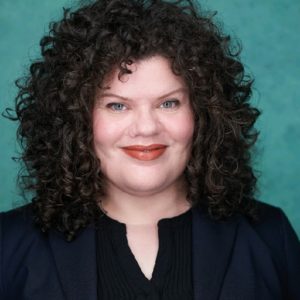 Edurne Irizarry might as well be Philly Latinx nonprofit royalty. Her father, Johnny Irizarry served in leadership positions for many years at nonprofits across the city, including La Casa Latina at University of Pennsylvania, The Lighthouse and Taller Puertorriqueño.
Edurne Irizarry might as well be Philly Latinx nonprofit royalty. Her father, Johnny Irizarry served in leadership positions for many years at nonprofits across the city, including La Casa Latina at University of Pennsylvania, The Lighthouse and Taller Puertorriqueño.
The younger Irizarry is also blazing a trail in the nonprofit world — starting out at the Mazzoni Center and leading through positions with Youth United for Change and the Kimmel Center.
After serving the past four years as program officer at the Philadelphia Foundation, Irizarry last month joined Social Venture Partners Philadelphia as lead of community impact — where she’ll leverage her experience to oversee SVP’s investment and capacity-building strategies for supporting poverty-fighting nonprofits in the region.
31. Raymond S. John, CEO & cofounder of 12+ and cofounder of Càphê Roasters
It’s a strong and sweet brew, born and grown in Kensington.
Raymond John started 12+ in Kensington after he graduated from the University of Pennsylvania. The nonprofit, which is focused on providing college-focused resources, tutoring and mentorship to create a “college-going culture” within schools with low college enrollment rates, now serves thousands of students across the city
More recently, John founded Càphê Roasters — a Vietnamese roastery and café — with two partners who just happen to be 12+ alums.
“[John] doesn’t helicopter in, perform his work, and retreat at the day’s end. He has lived in the Kensington/Fishtown area for over ten years since founding 12 Plus,” his nominator wrote.
“He has since gone on to find new, innovative ways of serving the neighborhood and sharing his own identity with the community. [Càphê Roasters] pays homage to the longstanding Vietnamese community in Kensington as well as the Asian American heritage of its founders. Càphê is a true social enterprise, it donates a significant portion of its profits to 12 Plus each year and has committed to hiring 12 Plus students to provide economic opportunity in the area.”
And there’s more.
John’s nominator considers him an AAPI trailblazer. “Ray has given many people (including myself) a blueprint of how Asian Americans can channel their strengths into making a difference through a career in the nonprofit sector.” the nominator wrote.
32. Onna Jones, resource navigator at Hopeworks Camden and CEO at the Perseverance Project
Onna Jones was the second most-nominated person on this list — for both her wok as resource navigator at Hopeworks Camden and her work at the Perseverance Project.
The Perseverance Project is a community nonprofit organization works to reduce recidivism rates in youth and young adults, ages 13-25, who have had previous contact with the justice system. “[Jones] helps them achieve goals even when they thought their back was against the wall,” said a nominator who focused on Jones’s work at the Project.
As resource navigator at Hopeworks Camden — a nonprofit teaching tech and computer skills to Camden youth — Jones is celebrated for doing everything from finding shelter, food assistance and housing for the young people the organization serves, to eliminating barrier to their success and providing support for her colleagues on staff.
“Onna is truly a hero to so many and her work goes unnoticed because she does so many things behind the scenes,” wrote one of her nominators.
“Onna is one of the most caring, kind hearted, generous individuals I know,” wrote another. “She has never allowed any of the youth with which she has come into contact leave without feeling supported.”
33. Nary Kiths, cofounder, KITHS Integrated and Targeted Human Services
Nary Kith was born in a refugee camp in Thailand after her parents fled the war in Cambodia. In Philadelphia Kith has devoted much of her energy to making sure refugees and immigrants in the city have access to the resources they need to thrive rather than just survive.
Kith founded KITHS (Kiths Integrated and Targeted Human Services) in the Logan section of the city four years ago, focusing on the Cambodian community’s mental health and wellness needs, and on ways to bring the Genocide-era elders and younger Cambodian Americans together for intergenerational sharing and healing.
In addition to her work at KITHS and with the Mayor’s Commission on Asian Pacific American Affairs, last month Kith became the division director of school based services for Children’s Crisis Treatment Center, where she’s working on providing services including individual therapy, and collaborating with caregivers and school staff to address behavioral concerns both in and out of the classroom.
34. Marion Leary, director of innovation, University of Pennsylvania School of Nursing
If you want to gauge Marion Leary‘s impact you’ve got to look nearly everywhere. That’s because the director for innovation at the University of Pennsylvania School of Nursing is also a celebrated geek, a science march organizer, an advocate for nurses, and op-ed writer.
There isn’t always a lot of overlap between Generocity and our sister site, Technical.ly, but Leary as a proponent of innovation across the healthcare space has impact in both spheres. Does anyone else have what it takes to convince Philadelphians to enthusiastically participate in a nursing ‘mutual aid’ conference taking place on Twitter?
Go ahead, we’ll wait for your answer…
35. Gail Loney and 36. Jacqueline Wiggins, North Philly community activists
Okay, so community activists rarely make this kind of list, which is just crazy given the real impact they have.
Take Gail Loney. The North Philly block captain was a senior compliance analyst at Macquarie Group until she retired. Now, she’s a community activist focused on stopping gentrification — and is part of the Stadium Stompers group that opposed the construction of Temple’s new stadium.
Activating alongside Loney in the Stadium Stompers, is Jacqueline Wiggins, a committeeperson in the 32nd Ward, and a Philadelphia Citizens Planning Institute planner.
“At 71, I think I’ve done my part. However, I am at the ready if Temple plans to disrespect the Black residents who live in our North Philly neighborhood,” Wiggins told Generocity in July. “If people become informed and get involved with their block or join a community organization, positive things can happen.”
37. Samip Mallick, executive director, South Asian American Digital Archive
Samip Mallick has been flying under our radar.
The executive director of the South Asian American Digital Archive has been at that post for the past nine years and it wasn’t until a nonprofit connector mentioned him to us last year that we started checking out his work.
With a background in both computer and library sciences, Mallick has worked as a program manager at the Social Science Research Council, and as outreach coordinator, bibliographer, and director of the Ranganathan Center for Digital Information at the University of Chicago.
Last year, the Ford Foundation hired him for a one-year stint as an archival consultant.
“He’s a second-generation American of South Asian descent [and] very committed to equity,” the nonprofit connector told us when she drew our attention to Mallick, adding that as the primary caregiver for his child, he’s made sure he can run the digital archive virtually from home.
“We have the power to ensure that the struggles for equality and inclusion our parents faced and that we face today are not the same ones we leave behind for the next generation,” Mallick wrote in one of the Archve’s newsletters. “If we know our history and advocate for our stories, we can break the cycle of xenophobia and bigotry that has impacted the South Asian American community from its earliest days in the US. Young South Asian Americans must know that they have a place in America’s story.”
38. & 39. Sarah Martinez-Helfman, president, and Shanell Ransom, program officer, Samuel S. Fels Fund
Is it a trend, these incredibly effective and transformative pairings of president and program officer of local philanthropic orgs? (See #7 & 8).
The Samuel S. Fels Fund‘s president Sarah Martinez-Helfman and its program officer, Shanell Ransom, are a great duo — together changing not only how the Fund awards grants, but its funding priorities.
During the uprisings of the summer of 2020, Martinez-Helfman was among the local philanthropic leaders that took a hard look at philanthropic practices and found them wanting. In fact, she found them complicit.
“Let’s be honest. Of all of the funds that have sprouted up in response to COVID-19, the ones that are getting the least support from philanthropy are those advancing systemic change,” she told Generocity in June 2020. “We have to ask ourselves why is that? Why are we protecting the status quo instead of supporting movements that build power in communities that have been looted by white supremacy for centuries?”
In echo of what they’ve instituted at Fels, Ransom made these suggestions to traditional grantmakers in conversation with Generocity in May: “Actively think about ways to make nonprofits lives’ easier and make changes to your operations/grant application process. [And] consider beginning relationships with grant dollars and work to increase the number of Black-led/Black-serving organizations in your grant portfolio.”
40. Shawn McCaney, executive director, William Penn Foundation
The William Penn Foundation has long been one the region’s most important philanthropic organizations, pouring tens of millions of dollars into its focus areas: improving education for low-income children, ensuring a sustainable environment, and fostering arts and culture.
Shawn McCaney has been the foundation’s executive director since 2017, but he served as a program director there for three years before that, and another 11 as program officer.
During that time he was the founding director of the Creative Communities program, helped forge a partnership with the Knight Foundation that resulted in the Reimagining the Civic Commons project, and was one of the creative forces behind the foundation’s Great Public Spaces grantmaking strategy.
“We will continue looking at ways to expand and improve educational opportunities for children in Philadelphia and increase public and private investment in pre-k and other early learning, which is particularly necessary to sustain providers through the COVID-related crisis,” he told Generocity in November 2020. “We also recognize the critical importance of fair and equitable access to clean waterways and outdoor spaces, particularly during the pandemic. And we are committed to preserving the neighborhood artists and cultural assets that enrich our city, most immediately by supporting them through the COVID crisis.”
41. Laura Kind McKenna, treasurer, The Patricia Kind Family Foundation
The former chair of the Patricia Kind Family Foundation, Laura Kind McKenna is described by her nominator as “THE outspoken leader in our region encouraging foundations to align their endowments with their values.”
Foundations are still finding their way towards McKenna’s position, which was to work until the foundation’s investments were 100% mission aligned.
“Our money is no longer sitting in mission-agnostic accounts or blindly invested in Wall Street, creating unknown or counterproductive consequences as we sleep,” she wrote in May 2019. “It’s in our local Philadelphia community, it’s revitalizing neighborhoods, it’s keeping people off the streets, warm, and employed with reliable income.”
“She was WAY out in front of this and is well known in those circles to be an unapologetic advocate,” her nominator added.
42. Bill McKinney, executive director, New Kensington Community Development Corporation
Dr. Bill McKinney has been the executive director of the New Kensington Community Development Corporation for little over a year.
But what a year.
McKinney’s January 2021 guest column at Generocity on the “5 principles of community driven development — and how to actualize them” became a surprise hit and still draws readers, all these months later — a testament to the value of McKinney’s guiding values as a nonprofit leader.
Then, when SEPTA closed down the Somerset Street Station, in March, McKinney and NKCDC spearheaded a “March for Safety and Solutions” which had a huge neighborhood turnout — and proved very effective at speeding the station’s reopening. This too is a testament, only this time to the power of a nonprofit totally aligned with its community, and a leader willing to stand up for it.
“We will continue to serve those in greatest need despite the incredible obstacles that are constantly placed in our way,” McKinney told us in December 2020. “We will continue to expand collaborations among partners committed to shared core values which will lead to greater impact in our communities.”
43. Sylvester Mobley, founder and CEO, Coded by Kids
As with Erinn Corbett-Wright, we didn’t need Forbes to tell us how impactful Sylvester Mobley is,
The technologist, entrepreneur and nonprofit professional is the founder and CEO of the wildly successful Coded by Kids — which offers free tech education programs for Philly’s kids.
Mobley’s nominator enumerated his achievements in the last year alone:
- Raised over $1M for the 1Philadelphia initiative that will directly benefit Philadelphia residents interested in tech and innovation.
- Ran the fourth year of Ctrl+Shift: a citywide coding competition for high school students. 50+ students competed and 4 winners were awarded $9,000 in cash prizes from event sponsors like Dell, SAP and Boomi.
- Draft Studios, the CBK student-run digital design and web development agency, completed 4 community projects this year for local organizations.
- Delivered 140 instructional hours for 150 students through CbK Classroom in 2020 before the COVID-19 shutdown.
- Transitioned in-person coursework to virtual programming during the pandemic and served 50 students through CbK Academy,
- Launched Plain Sight Capital — an early-stage venture fund for BIPOC startups currently working toward a total fund value of $50M.
“This Germantown native isn’t waiting for anyone else to come in and save his city and the future of its young people,” said Mobley’s nominator, “he’s doing the work himself and rallying a network of individual and organizational champions who are committed to the hard work of unraveling systemic inequity.”
44. Farrah Parkes, executive director, Gender Justice Fund
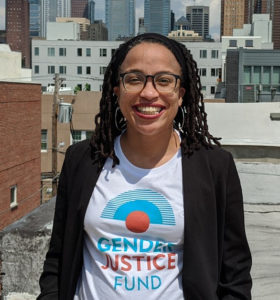 Farrah Parkes became the executive director of the Gender Justice Fund (formerly New Century Trust) in 2019, but has made her mark on Philadelphia’s nonprofit sector as if she had been in that leadership position much longer than that.
Farrah Parkes became the executive director of the Gender Justice Fund (formerly New Century Trust) in 2019, but has made her mark on Philadelphia’s nonprofit sector as if she had been in that leadership position much longer than that.
An advocate for trust-based philanthropy, Parkes realized that COVID recovery funding had largely ignored the needs of transgender people, and moved to create the Trans Resilience Fund for nonprofits and grassroots groups serving the trans community in Philadelphia and the surrounding counties.
Parkes’s impact has also been felt in the way she raises the profile of BIPOC-led organizations and amplifies the voices of community organizers and activists.
45. Maura Shenker, director, Temple Small Business Development Center
Maura Shenker, the director of Temple Small Business Development Center — which offers assistance to start-up and small businesses — was the most frequently nominated person on this list.
“Under Maura’s leadership, the Temple SBDC continues to reach a wider audience with the services,” said one of Shenker’s nominators. “Her ability to think outside the box and put together partnerships and programs that are in no way obvious but result in big gains is unlike anything I’ve ever witnessed.”
“Maura is tireless in in seeking and securing new opportunities to expand her services to her community,” another of her nominators said.
A third reported that Shenker “makes ‘the ask’ easy. She is always gracious, funny, direct and informed. She is always available to help.”
Before joining SBDC in 2018, Shenker served as director of Saint Joseph’s University’s Center for Professional Development, as VP of development for Finanta, and owned her own bookkeeping business.
Trending News









